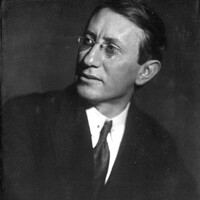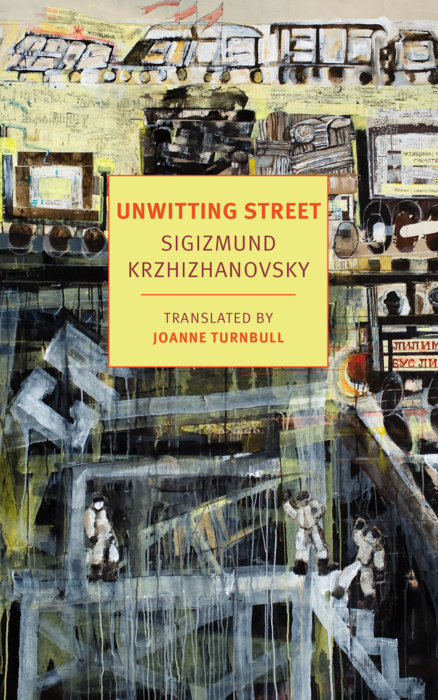
Sigizmund Dominikovich Krzhizhanovsky (Russian: Сигизму́нд Домини́кович Кржижано́вский) (February 11 [O.S. January 30] 1887, Kyiv, Russian Empire — 28 December 1950, Moscow, USSR) was a Russian and Soviet short-story writer who described himself as being "known for being unknown" and the bulk of whose writings were published posthumously.
Many details of Krzhizhanovsky's life are obscure. Judging from his works, Robert Louis Stevenson, G. K. Chesterton, Edgar Allan Poe, Nikolai Gogol, E. T. A. Hoffmann, and H. G. Wells were major influences on his style. Krzhizhanovsky was active among Moscow's literati in the 1920s, while working for Alexander Tairov's Chamber Theater. Several of Krzhizhanovsky's stories became known through private readings, and a couple of them even found their way to print. In 1929 he penned a screenplay for Yakov Protazanov's acclaimed film The Feast of St Jorgen, yet his name did not appear in the credits. One of his last novellas, "Dymchaty bokal" (The smoky beaker, 1939), tells the story of a goblet miraculously never running out of wine, sometimes interpreted as a wry allusion to the author's fondness for alcohol. He died in Moscow, but the place where he was buried is not known.
In 1976 the scholar Vadim Perelmuter discovered Krzhizhanovsky's archive and in 1989 published one of his short stories. As the five volumes of his collected works followed (the fifth volume has not yet reached publication), Krzhizhanovsky emerged from obscurity as a remarkable Soviet writer, who polished his prose to the verge of poetry. His short parables, written with an abundance of poetic detail and wonderful fertility of invention — though occasionally bordering on the whimsical — are sometimes compared to the ficciones of Jorge Luis Borges. Quadraturin (1926), the best known of such phantasmagoric stories, is a Kafkaesque novella in which allegory meets existentialism. Quadraturin is available in English translation in Russian Short Stories from Pushkin to Buida, Penguin Classics, 2005.









